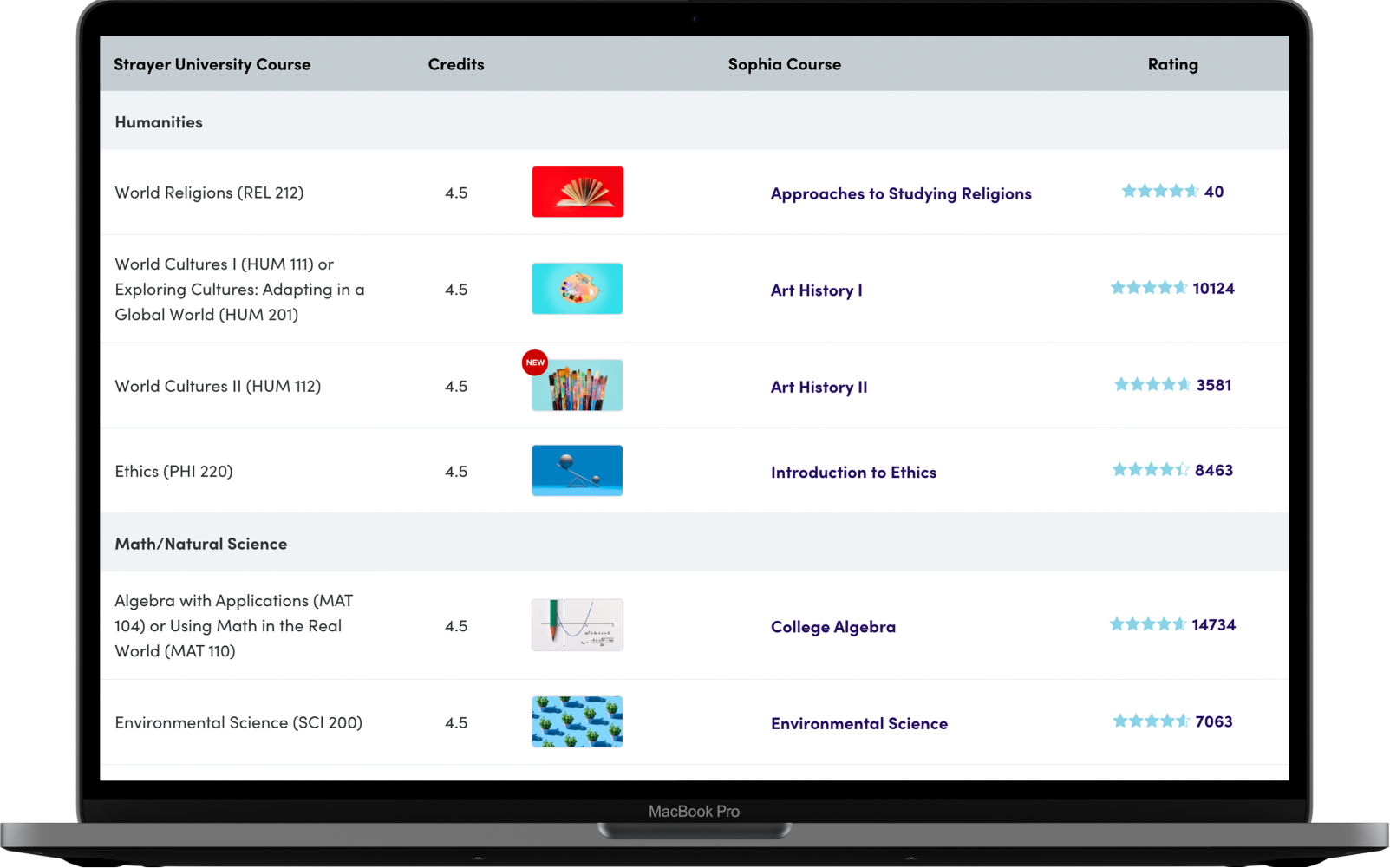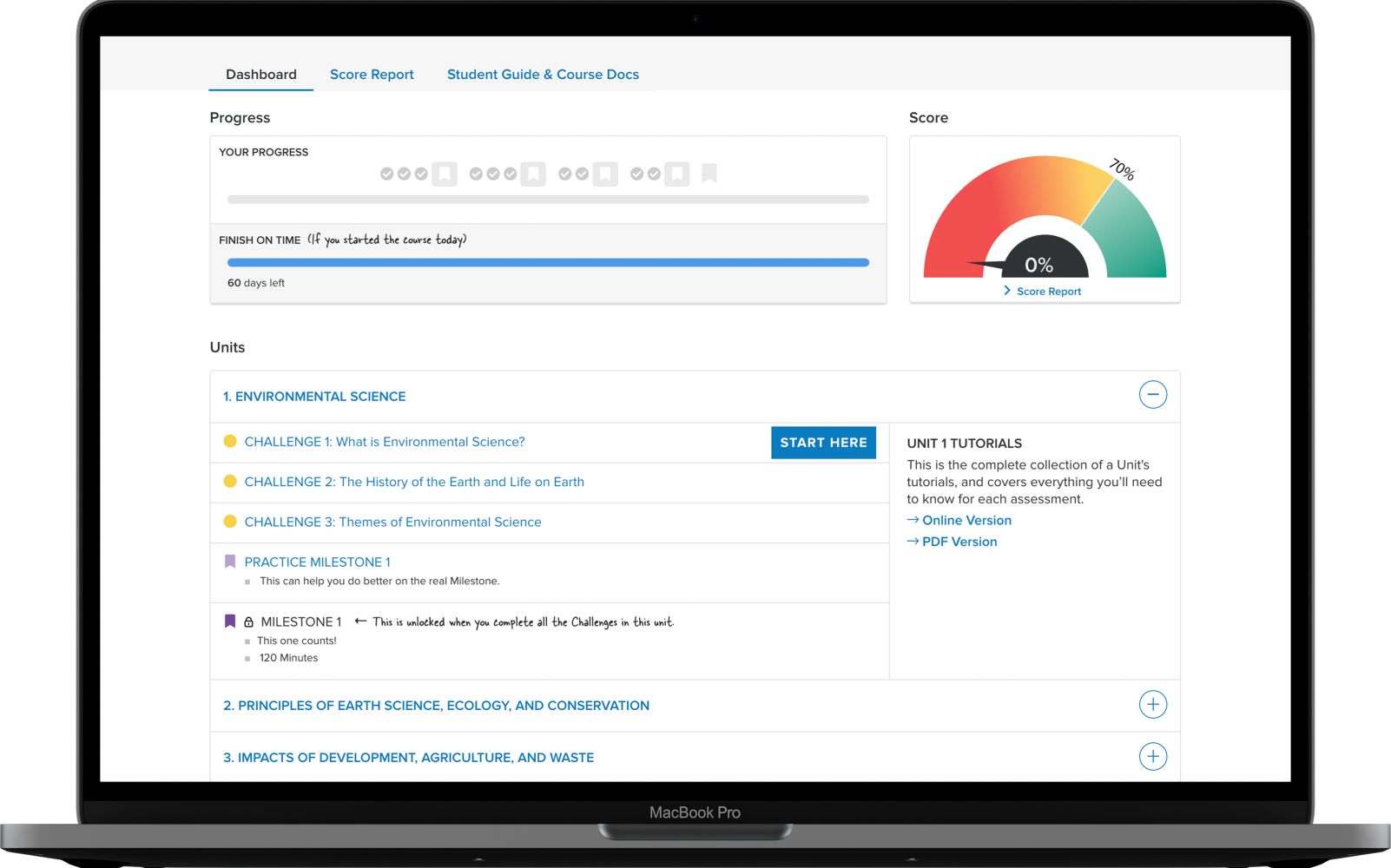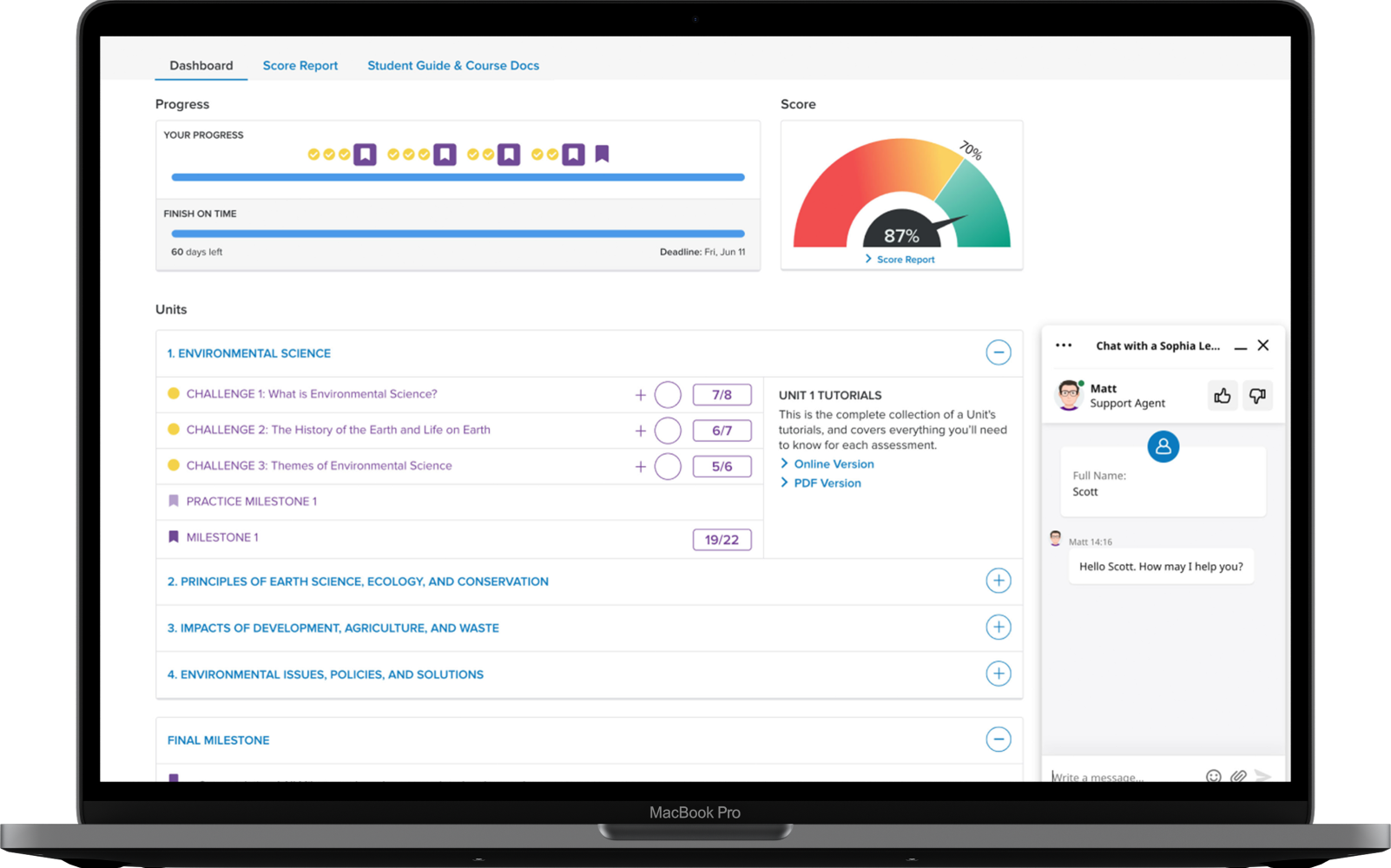
In this class, students will learn how to think more critically by questioning assumptions and biases and being aware of fallacies. Students will learn to interpret and write deductive and inductive arguments and apply to real-life situations.
-
15834 students successfully completed
-
49 partners accept credit transfer.* See Partners
-
3.0 semester credits
-
Recommended for credit to the ACE® and DEAC college and university networks.
- https://sophialearning.s3.amazonaws.com/spcc_courses/234/syllabus_pdf/df953b6d820e1cd2f53ced2f72b43757.pdf
Email your advisor to see if this course will transfer to your university
Assignments & grading
This is a pass/fail course. Students are required to complete all 13 Challenges (formative assessments), 4 Milestones (summative assessments), and 1 Touchstone (project-based or written assessments) with an overall score of 70% or better.
Download SyllabusLearning outcomes

- No credit card required!
- Sophia membership starts with a risk-free trial
Inside the Sophia courseroom
FAQ
Access the course content through the first Challenge of any of Sophia’s 50+ courses.
Check Sophia’s list of partner schools to see if your school is on the list. If not, contact your registrar to learn about your school’s transfer credit policy and if Sophia coursework can be submitted for transfer.
Sophia course completions do not expire and will be available to submit for transfer when you’re ready. At that time, check with your school’s registrar for their credit transfer policies.
If you’ve completed the first Challenge during your free trial, you can pick up right where you left off after you become a Sophia member.
Don’t worry. Your completed courses won’t disappear if you cancel your membership. Those courses will be there for you when you’re ready to submit for transfer.
If you have an education benefit through your employer, it may cover your subscription to Sophia. Check with your benefits administrator to find out if you qualify.
Critical Thinking reviews




